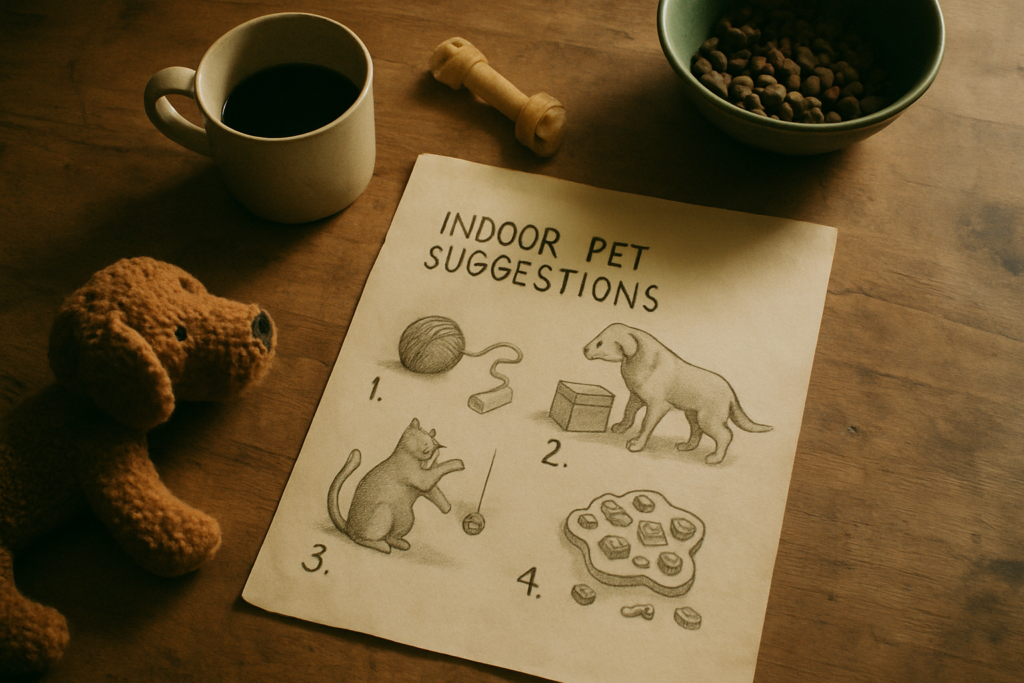Understanding Mental Stimulation for Pets
Mental stimulation plays a crucial role in pets’ overall well-being. Activities engaging their minds can significantly enhance their quality of life and prevent numerous issues.
Why Mental Stimulation Is Essential
Mental stimulation activates pets’ cognitive functions, helping maintain their mental health. Dogs, for example, become bored without engaging activities, leading to destructive behaviors like:
- chewing furniture
- excessive barking
Cats may develop stress-related behaviors such as:
- inappropriate urination
- aggression
if not mentally stimulated. Incorporating puzzle toys, training sessions, and interactive games offers varied and effective mental exercises.
Signs of Inadequate Mental Stimulation
Pets exhibit specific behaviors when they’re not mentally stimulated enough. Bored dogs often bark excessively, dig, or chew household items. Cats display signs of stress, including over-grooming or hiding.
Look out for these behaviors as indicators of inadequate mental exercise. Address them by incorporating more engaging activities into their daily routines.
Benefits of Mental Stimulation for Different Types of Pets

Mental stimulation greatly enhances pets’ well-being, improving their overall quality of life. Different types of pets benefit uniquely from mental exercises.
Dogs
Mental exercises boost dogs’ cognitive skills, keep them engaged, and prevent behavioral problems. Activities like puzzle toys, training for tricks, and scent games challenge a dog’s mind.
These activities reduce boredom-related issues like excessive barking and chewing. Regular mental stimulation also helps manage anxiety or stress in dogs.
Cats
Cats thrive on mental stimulation to stay sharp and active. Engaging cats with laser pointers, interactive toys, and puzzle feeders promotes problem-solving and reduces stress-related behaviors.
Mental exercises in cats can alleviate over-grooming and destructive scratching. Keeping a cat mentally stimulated ensures they remain curious and exhibit natural hunting behaviors.
Birds and Other Pets
Birds need mental stimulation to mimic their natural foraging habits and stay entertained. Toys that require problem-solving, such as foraging puzzles, keep birds mentally sharp and reduce feather plucking or repetitive behaviors.
Small mammals like rabbits and guinea pigs benefit from tunnels, obstacle courses, and hidden treats, which encourage exploration and cognitive engagement. Reptiles, too, can be enriched with varied environments and objects to investigate, promoting natural behaviors and reducing stress.
How to Provide Mental Stimulation
Providing mental stimulation for pets is integral to their overall well-being. Various methods ensure pets stay engaged and stimulated.
Interactive Toys and Puzzles
Interactive toys and puzzles can significantly enhance mental stimulation for pets. Puzzle feeders, for instance, challenge pets to work for their food by solving problems or manipulating objects.
These toys improve cognitive function. For example, cats can benefit from toy mice that they need to “hunt,” while dogs enjoy treat-dispensing puzzles. Ensure toys are safe and appropriate for the pet’s size and capabilities to maximize benefits.
Training and Learning Sessions
Training and learning sessions provide excellent mental exercise. Pets learn new commands and tricks while strengthening their bond with their owners.
Start with simple commands like “sit” or “stay” and gradually increase difficulty. Food rewards and positive reinforcement make sessions more effective. Allocate a few minutes daily for training to keep the pet’s mind active and focused.
Consider advanced training classes if the pet excels in basic commands, ensuring continued mental growth.
Challenges and Solutions in Mental Stimulation
Mental stimulation is essential for pets’ well-being, yet it presents certain challenges. Here are practical solutions for common issues.
Dealing With Bored or Destructive Behavior
Boredom often leads to destructive behavior in pets, such as chewing furniture or excessive barking. Engaging activities help mitigate these tendencies. I recommend interactive toys and puzzle feeders for dogs and cats.
Birds benefit from foraging toys and mirrored objects. Regularly changing toys prevents monotony and keeps pets engaged. Inconsistent mental stimulation can lead to stress, so ensuring daily engagement is crucial.
Incorporating Routine and Diversity
- Establishing a routine provides pets with a sense of security, yet diversity keeps them mentally stimulated.
- I suggest integrating varied activities to maintain interest.
- For dogs, mix training sessions with fetch or sniffing games.
- Cats enjoy laser pointers, climbing trees, and hidden treats.
- Birds thrive on daily flight time paired with problem-solving toys.
- Keeping a log of activities helps track what works best and prevents repetition.
- Balance routine and novelty to ensure pets remain stimulated and content.


